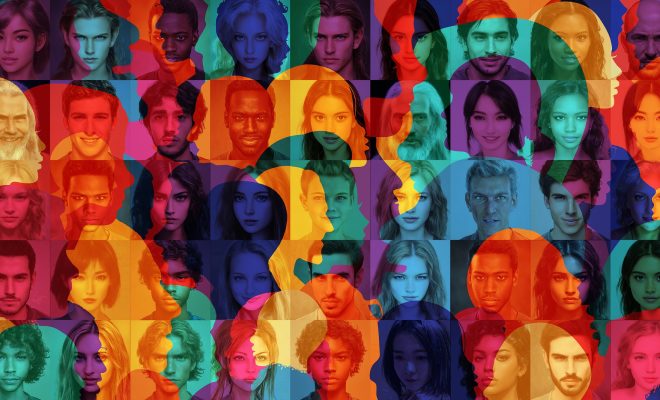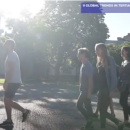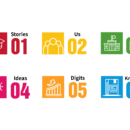#Coronateaching: Syndrome or a new opportunity for reflection? II/II

By Debora Ramos Torres | Coronateaching as a syndrome
In view of the experiences mentioned in the first part of this reflection regarding the impact and consequences generated by emergency remote teaching (ERT), and even with the required support, the implementation of ERT or coronateaching has presented itself as an emerging socio-educational phenomenon[1] with psychological implications for both teachers and students. Thus, the phenomenon is understood as a generalized anxiety disorder of the educational actor when he or she feels overwhelmed by the excessive information coming in through educational platforms, mobile applications and e-mail about the academic activities to be carried out in the subjects or courses under his or her responsibility, in the corresponding grade or level of study. This sudden move to virtual teaching, as well as the uncertainty about the future, has increased stress and anxiety disorders, and these are aggravated by the measures of social isolation and confinement due to the pandemic.
This phenomenon has been identified as a syndrome that gives rise to feelings of frustration and powerlessness due to barriers in connectivity or to the lack of computer resources, in addition to the diversity of difficulties in the face of demands, and the lack of knowledge in the integration of digital technologies in their courses. This sometimes causes depression when the educational actors see themselves as helpless in the face of this unexpected educational situation.
Educators that master technology are also affected. The excess of technological resources displayed with different screens open at the same time, constantly sounding every time a new email, tweet, or message enters social platforms (Google Calendar, Whatsapp, Facebook, LinkedIn and Instagram) or a new notice announcing the beginning of a virtual conference (in Zoom, WebEx, Adobe Connect or Google Meet), where it is necessary to manage multiple resources at the same time, generate tension, distraction, stress and reduction in the level of productivity.
Some recently published reports claim that students are stressed by the uncertainty of the future and teachers are uneasy about imposed virtual teaching. So one of the conclusions they have reached is that university students are presenting more psychological and pedagogical problems than technological ones, as a result of the pandemic or aggravated by it [2].
Given these aspects of reality, the global health crisis has exacerbated many challenges in society and in the field of higher education we can anticipate that, in the immediate future, although online learning will not completely replace face-to-face learning, a more defined new position of coexistence of both educational modalities is envisaged.
The experience lived by the teaching professionals in times of pandemic through the ERT and their efforts to lessen the negative effects of coronateaching, as well as the ability to extract learning and incorporate innovations that anticipate the challenges to come, will be actions that determine future success.
It is expected that in the next few days we will enter the post-pandemic moment and to this end it is opportune to advance with the eminent knowledge and intensive experience obtained, since there is no doubt that the teacher’s perspective will be fundamental in redirecting the educational policies that should be undertaken, for which the contribution of those teachers who have maintained a reflective attitude in their professional work will be essential.
A golden opportunity for reflection
The training framework of higher education in times of pandemic, and especially, in the teaching practice of professors of this educational level that operates in the ERT with all its effects, gives this professional an opportunity that cannot be missed, to intentionally practice reflection from action, a type of practice through which they can improve the understanding of their own teaching, reflecting systematically and consciously on their experiences.
This reflective professional practice allows teachers to build knowledge through the solution of problems found in their practice, that is, to construct knowledge from their own experience, mediated by reflection in and on the action to make decisions through the use of strategies and methodologies to innovate (Schön, 1998 [3]).
To the extent that a teacher reflects on his/her practice, in this case on his/her teaching action, he/she will increase his/her capacity to describe, interpret, evaluate, and renew his/her professional performance, since reflection is here understood, in the manner of Schön (1998), as a form of knowledge, as a global analysis and proposal that guides action. In this way, we contribute to this purpose by considering the two basic moments of reflection: 1) what is thought and felt during the action or practice of teaching (reflection in action) and, 2) what is thought and felt after the action (reflection on the action).
Reflective practice
Considering this reflective practice as a stimulating methodology[4] to research from the practical context in which the main starting components are the own experiences of each of the teachers in their context and reflection on their own practice, in times of pandemics and coronateaching, we see an excellent opportunity to systematically and permanently establish reflection from this action, since surprising, complex, destabilizing and unprecedented situations, such as those that have occurred in these times, are factors that activate moments for this type of reflection.
We could use the metaphor of the pool that some qualified observers have used to explain what is happening with digital learning, and this time use it as an example to promote the use of this golden opportunity for HEI teachers in the region to reflect on their teaching practice in times of COVID 19 based on the postulates of Schön’s theory.
We can say that during this period of pandemic, the teachers and their students were thrown to the bottom of a pool, that of the training continuum in crisis due to the coronavirus, and in the face of which they were only asked to swim. Some will sink, others will float to the edge and come out and will never again return to the pool. However, many others will find out what to do, how to swim and how to keep on swimming, but the important thing here will not only be to keep up, but also to take advantage of this forced swimming to reflect actively, without ceasing to act and to raise awareness on better academic performance, reorganizing what you are doing while you are doing it, with a view to make the necessary changes to optimize results (reflection in action) and, once the present action has been completed, to resume thinking about what you have done in order to discover how this knowledge in action may have contributed to that unexpected result (reflection on reflection in action) by extracting the correct lessons from that experience.
And it is precisely here where reflective practice, as that mixture of sensations, intuitions and thoughts that interact in the action itself, in its results and in what is reflected on it, with the ultimate aim of improving the situation with suggestions for change and decisions, and even with outlining plans of action to transform university teaching practices, is configured as an extremely valuable tool for these times and those to come.
Débora Ramos Torres is an academic specialist at UNESCO-IESALC
References
1) Cerecero, I. (2019). Diez modelos relacionados con la práctica reflexiva (Ten models related to reflective practice). Revista Panamericana de pedagogía saberes y quehaceres del pedagogo. N°28 (2019): 155-181. Retrieved from: http://portalderevistasdelaup.mx/revistapedagogia/index.php/pedagogia/article/view/327
2) Schön, D. (1998). El profesional reflexivo: cómo piensan los profesionales cuando actúan. (The reflective professional: how professionals think when they act). Barcelona: Paidós.
[1] https://edumorfosis.blogspot.com/2020/04/el-corona-teaching.html
[2] https://elpais.com/sociedad/2020-05-11/me-da-mas-ansiedad-la-universidad-que-la-pandemia.html?utm_source=Facebook&ssm=FB_CM#Echobox=1589268852
[3] Donald A. Schön (1930-1997) is considered an influential thinker of the 20th century who developed the theory and practice of the reflexive professional’s learning, understanding that the true professional is the one who in complex environments knows how to face problems of a practical nature; two of his key books are “The Reflective Practitioner: How professionals think in action” (1st edition, 1983), and “Educating the Reflective Practitioner: Toward a New Design for Teaching and Learning in the Professions” (1st edition, 1987).
[4] We found in many data bases a great number of articles published by researchers from universities in different regions of the world, reporting a diversity of examples of the application of Schön’s theory and practice, as well as of the strategies and methodologies proposed by him. Among other excellent works, we found Cerecero Medina’s(2019) with an excellent compilation and analysis of diverse models related to reflective practice and where he warns us that this type of practice transcends the use of a model, because it implies a working lifestyle that involves self-questioning, self-awareness, observation of practice and context, analysis of experiences and facts, their understanding and interpretation, as well as the disposition to change, to relearn and to assume responsibility for decisions and actions taken; and above all, the continuous search for improvement of the person and the environment in which he/she works.
Photo by Edward Jenner in Pexels.
RELATED ITEMS








